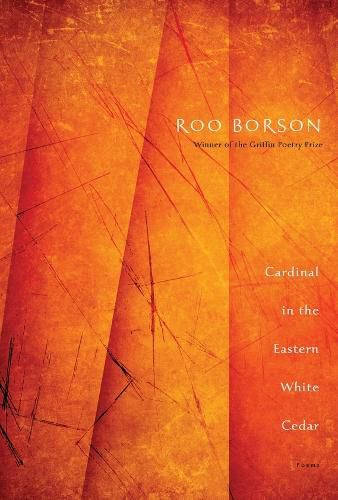Readings Newsletter
Become a Readings Member to make your shopping experience even easier.
Sign in or sign up for free!
You’re not far away from qualifying for FREE standard shipping within Australia
You’ve qualified for FREE standard shipping within Australia
The cart is loading…






A captivating and poignant new collection of poetry from Griffin Poetry Prize winner Roo Borson that probes some of our most important questions.
After Roo Borson’s two previous collections – Short Journey Upriver Toward Oishida and Rain; road; an open boat – set the seasons in motion, focusing the poet’s mind on time, mortality, transience, and absence, Cardinal in the Eastern White Cedar arrives to complete the triptych. From the glittering, classically rendered image to a freighted, lucid, narrative line, Borson’s voice can shift and refract while holding true to the momentary facts of the shifting, given world. Her meditations are a kind of fidelity to inquiry, to attachment, to what can’t be fully known. Here the distant past collides with the near future, the present opens suddenly into another age, and friendship becomes the measure of time’s salience. Cardinal in the Eastern White Cedar depicts what vanishes, the various modest homes where half-remembered lives all flow toward their common end. Roo Borson has crowned a sustained achievement with a work of startling intimacy and vividness.
$9.00 standard shipping within Australia
FREE standard shipping within Australia for orders over $100.00
Express & International shipping calculated at checkout
Stock availability can be subject to change without notice. We recommend calling the shop or contacting our online team to check availability of low stock items. Please see our Shopping Online page for more details.
A captivating and poignant new collection of poetry from Griffin Poetry Prize winner Roo Borson that probes some of our most important questions.
After Roo Borson’s two previous collections – Short Journey Upriver Toward Oishida and Rain; road; an open boat – set the seasons in motion, focusing the poet’s mind on time, mortality, transience, and absence, Cardinal in the Eastern White Cedar arrives to complete the triptych. From the glittering, classically rendered image to a freighted, lucid, narrative line, Borson’s voice can shift and refract while holding true to the momentary facts of the shifting, given world. Her meditations are a kind of fidelity to inquiry, to attachment, to what can’t be fully known. Here the distant past collides with the near future, the present opens suddenly into another age, and friendship becomes the measure of time’s salience. Cardinal in the Eastern White Cedar depicts what vanishes, the various modest homes where half-remembered lives all flow toward their common end. Roo Borson has crowned a sustained achievement with a work of startling intimacy and vividness.